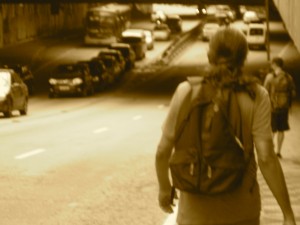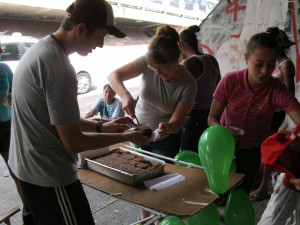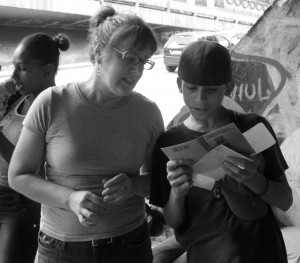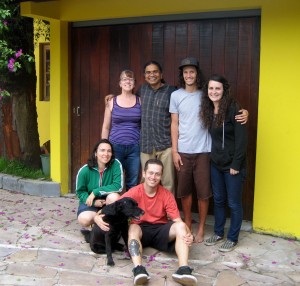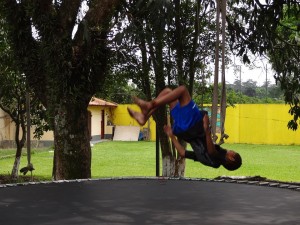For I know the thoughts that I think toward you, says the Lord, thoughts of peace and not of evil, to give you a future and a hope. Then you will call upon Me and go and pray to Me, and I will listen to you. And you will seek Me and find Me, when you search for Me with all your heart. -Jeremiah 29:11-13
We found the children!!!
I mentioned in my previous posts that we have been searching high and low for the children for weeks and now we finally found them. They found a new place of refuge in a highway tunnel. It is not the quietest place but it is hidden
The first young boy to greet us was Israel. He came up to me and asked if we were going to have an early celebration. I was quite taken aback by his enigmatic question. Thankfully he reminded me that his birthday was on Nov. 30th. Israel turns 18 on this day. I remember when he told me this for the first time about a month ago. I said that we should celebrate his birthday with a cake. I was surprised that he remembered what I said. Well, a promise is a promise. We asked Israel if we could celebrate his birthday two days after the fact because we needed to prepare for the celebration and he happily agreed.
Melanie agreed to bake the cake. Mary was going to get the card and Caetano decided that as a team we could give Israel a baseball cap because he is never seen without one. His present one is old and filthy. I wanted to find a moment where I could pray for him. I wanted to make sure that Israel knows that his birth is a special gift from God to this world.
When we got to the tunnel, the children and teens were eagerly waiting for us. They made us extremely nervous when one of them tried to rush across heavy traffic to greet us. We have never seen them so open and enthusiastic to receive us. The older ones forbade any use of drugs while we were there. This is the first time they have done this. We brought balloons and everyone helped to set the table made out of scrap wood. The cake was placed on it and the candles were lit and the birthday song was sung. We had enough soft drinks to go around and Israel was smiling and visibly joyous. He wasn’t sure that he was to blow out the candles and cut the cake. It appears like this was the first time he had a birthday celebration. All the teens and children were grateful that we remembered this day. For them, it was not just Israel’s birthday but it was an event where they were remembered. It was a special moment for us and a breakthrough. We were able to communicate with simple gestures that they were special to us. I am not sure how long this is going to last but it is good for the moment. Finally, we got Israel aside and I prayed a prayer for him. It appears that at this precise moment, something cut right through to his soul. He held back his tears and thanked us for a wonderful birthday. He read his birthday card which has the above-mentioned verse and he kept it in his pocket.
Please pray for Israel. He has been in the streets since he was 13 and his older sister was living in the streets before him. She disappeared and no one knows whether she is alive. Israel comes from a very poor family that has not been looking for him. He sniffs thinner constantly and has developed tremors in his left hand which has been a concern for us.

